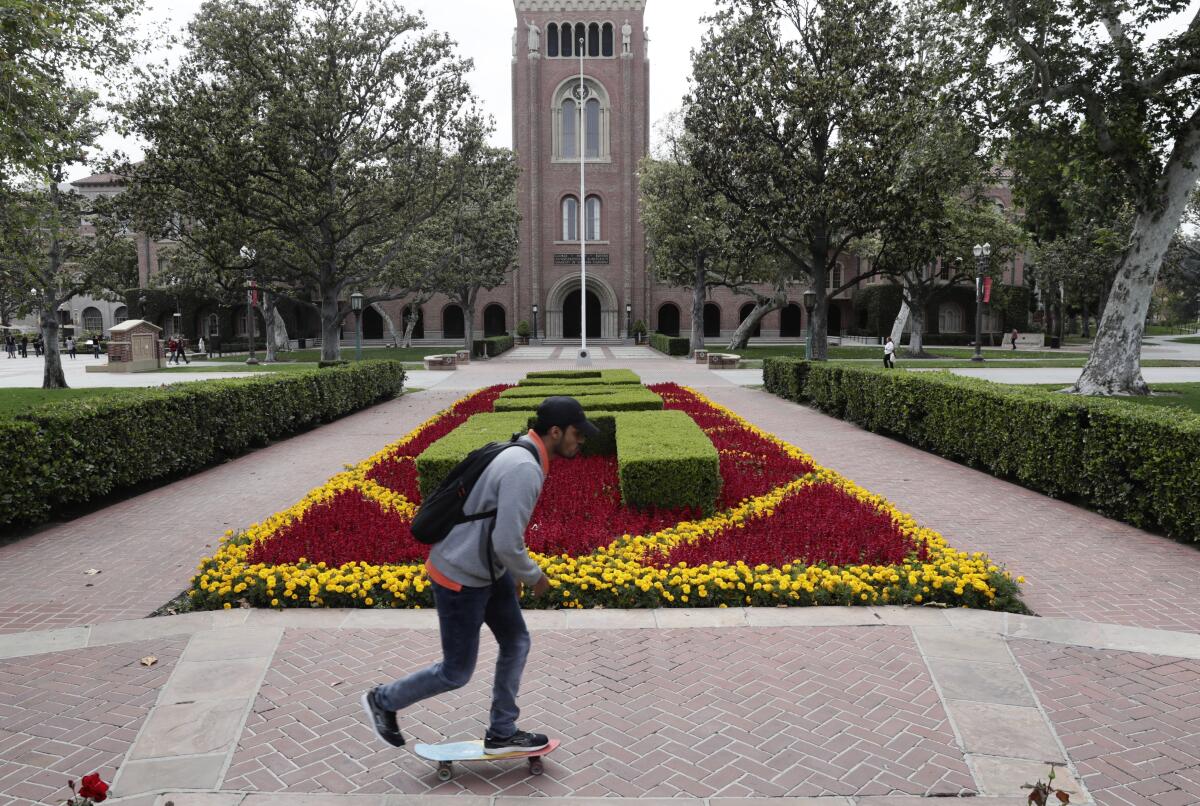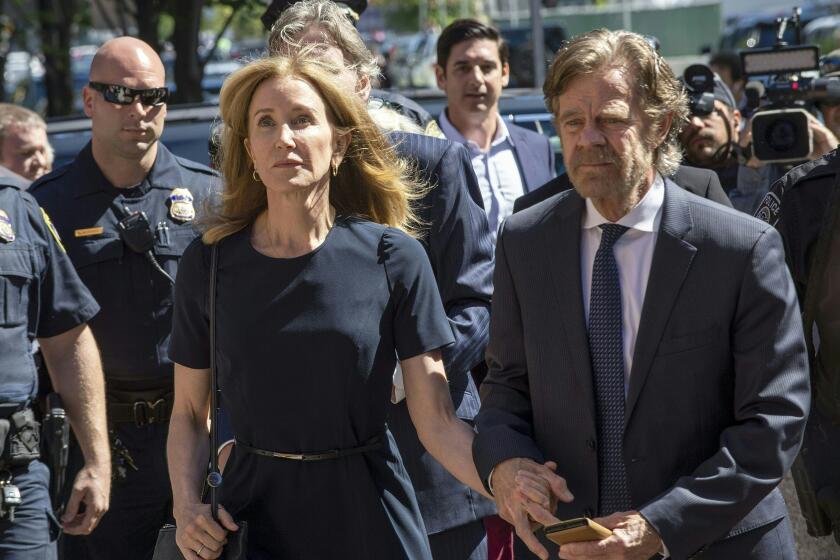‘They need to pay up’: Emails in college admissions trial show USC’s interest in wealthy applicants

- Share via
USC officials discussed how much money some families stood to donate while deliberating whether to endorse their children as “VIP” applicants, according to emails filed recently in federal court.
Lawyers for Jovan Vavic, who was fired as USC’s water polo coach in 2019 after being charged with misrepresenting applicants as talented athletic recruits in exchange for bribes, put forward the emails to support a request to call USC officials as witnesses in his trial, which began this week in Boston.
Vavic has pleaded not guilty to charges of racketeering, bribery and fraud.
Prosecutors say Vavic conspired with the scheme’s admitted ringleader, William “Rick” Singer, to deceive the school’s admissions office in exchange for payments to the USC water polo program’s account and Singer’s paying the private school tuition of Vavic’s children.
Vavic’s lawyers say USC effectively required coaches to raise funds for their programs. One of his attorneys, Stephen G. Larson, previously told The Times that the case brought against Vavic “ignores the reality that at USC, a parent’s ability and willingness to contribute to the university, including to athletics, influenced admissions decisions.”
Federal prosecutors accused top CEOs, two Hollywood actresses and others of taking part in an audacious scheme to get their children into elite universities through fraud, bribes and lies.
Larson is seeking to call three current and former USC officials to testify about the school’s fundraising practices. The emails that he filed in court, he said, show that Alexandra Reisman, Scott Wandzilak and Joseph Aguirre discussed giving “preferential admissions treatment for children of prospective donors, including with Coach Vavic.”
In one of the messages, Reisman said she had obtained “intel” on a family who she feared was “going to screw us on a gift.”
Reisman was Alexandra Bitterlin when the emails were written. She is currently an associate athletic director at USC.
A girl in the family, whose name was redacted, had wanted a job with USC’s football program “to get a boyfriend who is on the team,” Reisman wrote. “We shouldn’t get the student a job until we get the gift first,” she wrote in an email, adding, “So basically no gift, no job.”
Reisman’s email was addressed to Donna Heinel, a former USC official who has pleaded guilty to fraud for endorsing the admission of unqualified applicants in exchange for payments to a school account under her control. Heinel will be sentenced in June.
“You’ve done enough to get her in,” Reisman told Heinel. “They need to pay up.”
In another exchange, Reisman told Heinel that a family had given $30 million to a Canadian university. “Major potential for them,” she wrote. In a subsequent email, Reisman said, “They’re like the Anheuser Busch family $$$$.”
Pat Haden, then the school’s athletic director, asked Reisman and Heinel for “up to date info” on a prospective donor. “Is this THE GUY who was supposed to give us the $2 million or is this his relative?” Haden asked. “Info on kid trying to get in?”
Heinel reminded Haden that he had introduced himself to the man, whose name was redacted, in “the stands at Notre Dame.”
“He is the one with the big money … $2 million,” Heinel wrote.
“The $2 million [the man] apparently promised us was only going to come when his kid applied, which is now,” Reisman wrote. “That’s the reason he’s here, visiting with Donna and kid with admissions.”
“It came from the headmaster saying if the kid got in [the man] would support USC with $2M,” Reisman added.
Reisman, whom the authorities have not accused of wrongdoing, “unequivocally denies that she ever solicited donations to USC for admission,” Glenn MacKinlay, a Boston lawyer representing Reisman, Aguirre and Wandzilak, wrote in court papers.
Though Reisman “used a poor choice of words,” she never discussed applicants with coaches who might recruit them, MacKinlay wrote.
Haden’s lawyer, Brandon Fox, said his client, like athletic directors at every university, was expected to raise money for his school. “At no point did Mr. Haden condition any student’s participation on a team to a donation,” Fox said in a statement. He added that Haden has cooperated with the government’s investigation and has been told that “at no time” was he “implicated in any way.”
“USC and our admissions processes are not on trial,” a university spokesperson said in a statement. USC fired Vavic as soon as the charges against him became public, the spokesperson added.
The practice that Reisman, Heinel and Haden were discussing in the emails — flagging certain applicants as “VIP” for various reasons, such as their family’s potential to donate — was entirely separate from the loophole that Singer exploited, MacKinlay wrote.
The children of Singer’s clients went before an admissions subcommittee, or “subco,” that weighed applicants who were recruited by USC’s athletic programs. Singer has admitted bribing coaches and administrators to misrepresent his clients’ children as elite athletes, using phony resumes and staged or even photoshopped images of them playing sports.
Applicants who were flagged as “VIP” did not go before this subcommittee but the general admissions process, according to MacKinlay. While a “VIP” applicant enjoyed a better chance of getting in than a normal student, their rate of acceptance “was still low and was considerably lower than applicants who went through subco,” MacKinlay wrote.
USC’s admissions office could choose to admit a student flagged as a “VIP” by the athletics department, knowing that the applicant was important to the department because his or her family stood to donate to the school, MacKinlay wrote. “There was no reason to resort to pretending that the applicant was a recruited athlete and therefore evaluating them through the subco process.”
More to Read
Sign up for Essential California
The most important California stories and recommendations in your inbox every morning.
You may occasionally receive promotional content from the Los Angeles Times.












